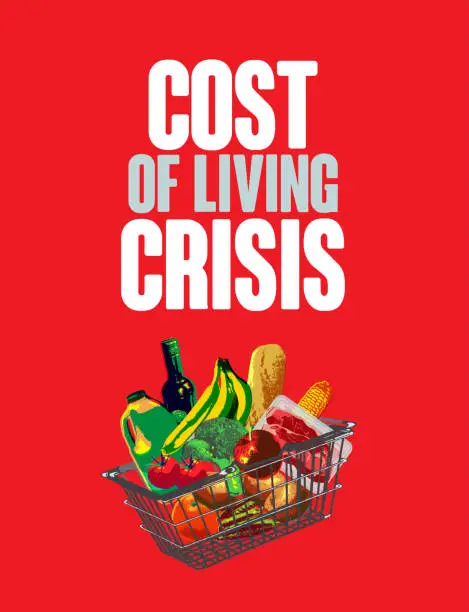Thousands Protest Food Poverty in Britain

In a show of working-class solidarity, thousands of people took to the streets across Britain over the weekend to demand an end to food poverty. The protests, organized by the grassroots campaign Enough is Enough, came in response to the growing crisis of food insecurity in the UK.

According to a recent report by the Food Foundation, one in eight adults in the UK are now living in food insecurity. This means that they are unable to afford to eat a healthy diet, and are often forced to skip meals or rely on food banks. The report also found that the number of people living in food insecurity has increased by 50% since the start of the COVID-19 pandemic.
The protests on Saturday and Sunday were a direct response to this crisis. Demonstrators marched through the streets of London, Liverpool, Glasgow, and dozens of other cities, carrying banners and chanting slogans demanding an end to food poverty.
“We are sick and tired of the government turning a blind eye to the growing number of people who are struggling to put food on the table,” said one protester in London. “We demand that the government take action to end food poverty now.”
The protests also called for an end to “obscene profiteering” by supermarkets. Supermarket chains have been accused of taking advantage of the cost-of-living crisis by raising prices and cutting back on discounts.
“The supermarkets are making record profits while people are going hungry,” said another protester. “This is a disgrace, and it must stop.”
The protests were a powerful show of working-class anger and frustration. They sent a clear message to the government that the people will not stand for the continued erosion of their living standards.

The protesters are calling for a number of measures to address food poverty, including:
- A universal basic income that would provide everyone with a guaranteed income, regardless of their employment status.
- A national food service that would provide free or subsidized meals to everyone who needs them.
- A ban on food waste, and a requirement for supermarkets to donate unsold food to food banks.
- Increased investment in public transportation and affordable housing. So that people can afford to get to work and have a safe place to live.
Government urged to take action on food poverty
The protests come at a time when the cost of living is rising sharply in the UK. The government has responded to the crisis by raising taxes and cutting benefits. Which has only made things worse for many people.
The protesters argue that the government is not doing enough to help people who are struggling to make ends meet. They say that the only way to solve the problem of food poverty is to fundamentally change the way the food system works.
The protests met with a mixed response from the government. Some ministers dismissed the protesters as “left-wing radicals,” while others said that they were listening to their concerns.
The protests are a sign that the issue of food poverty is becoming increasingly urgent in the UK. The government needs to take action to address this problem, or it will only get worse.
Working Class Fights Back Against Capitalist System
the protests against food poverty are a sign of the growing class struggle in Britain. The capitalist system is inherently exploitative, and it creates a situation. Where the rich get richer and the poor get poorer.
The cost-of-living crisis is just one manifestation of this exploitation. As the prices of food and energy rise, people squeezed out of the market. They forced to choose between eating and paying their rent, and many are falling into poverty.
The protests against food poverty are a sign that people are starting to fight back against this exploitation. They are demanding that the government take action to help them. And they are showing that they are not going to accept the status quo.
The government needs to listen to these demands and take steps to address the crisis. It needs to raise the minimum wage, provide affordable housing, and regulate the food industry. These are all measures that would help to reduce food poverty and improve the lives of working people.
The protests against food poverty are a sign of hope. They show that people are starting to fight back against the capitalist system, and they are demanding a better future.

- Art
- Causes
- Best Offers
- Crafts
- Dance
- Drinks
- Film
- Fitness
- Food
- Juegos
- Festival
- Gardening
- Health
- Home
- Literature
- Music
- Networking
- Other
- Party
- Religion
- Shopping
- Sports
- Theater
- Wellness



